From Language Relativism to Austronesian Languages of Taiwan: Academia Sinica’s Fellow Li Jen-kuei’s on Taiwan’s languages
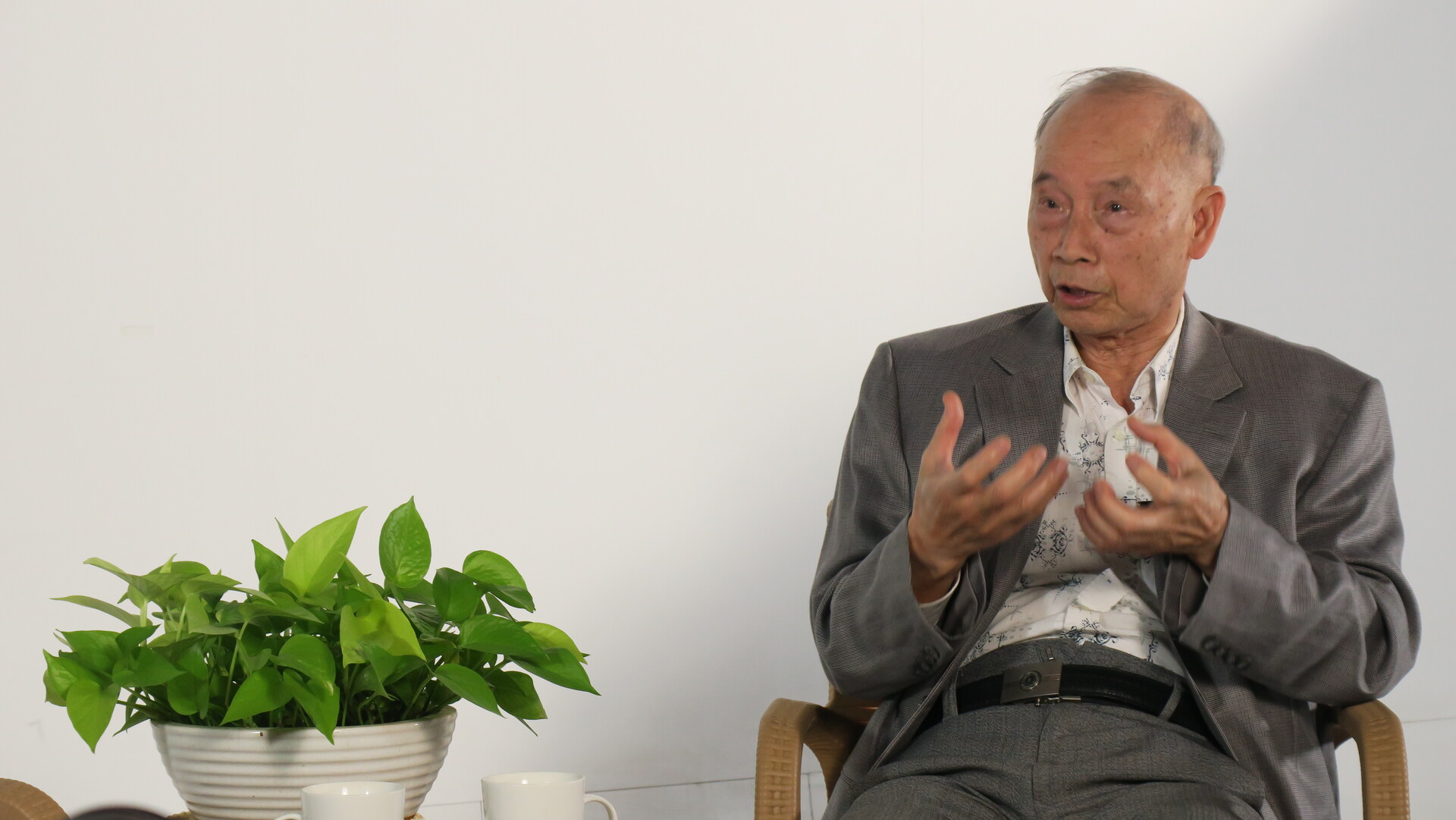
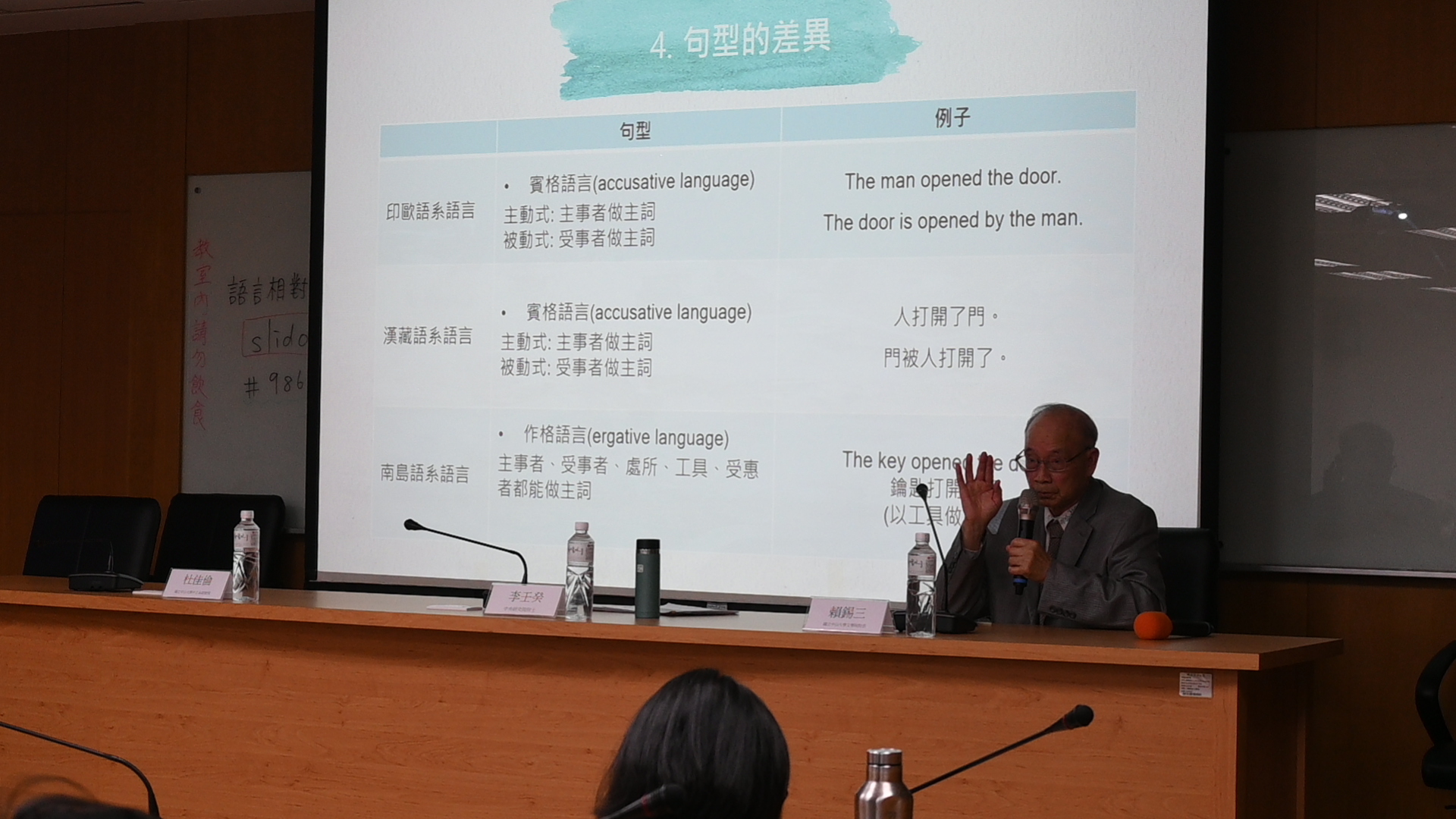
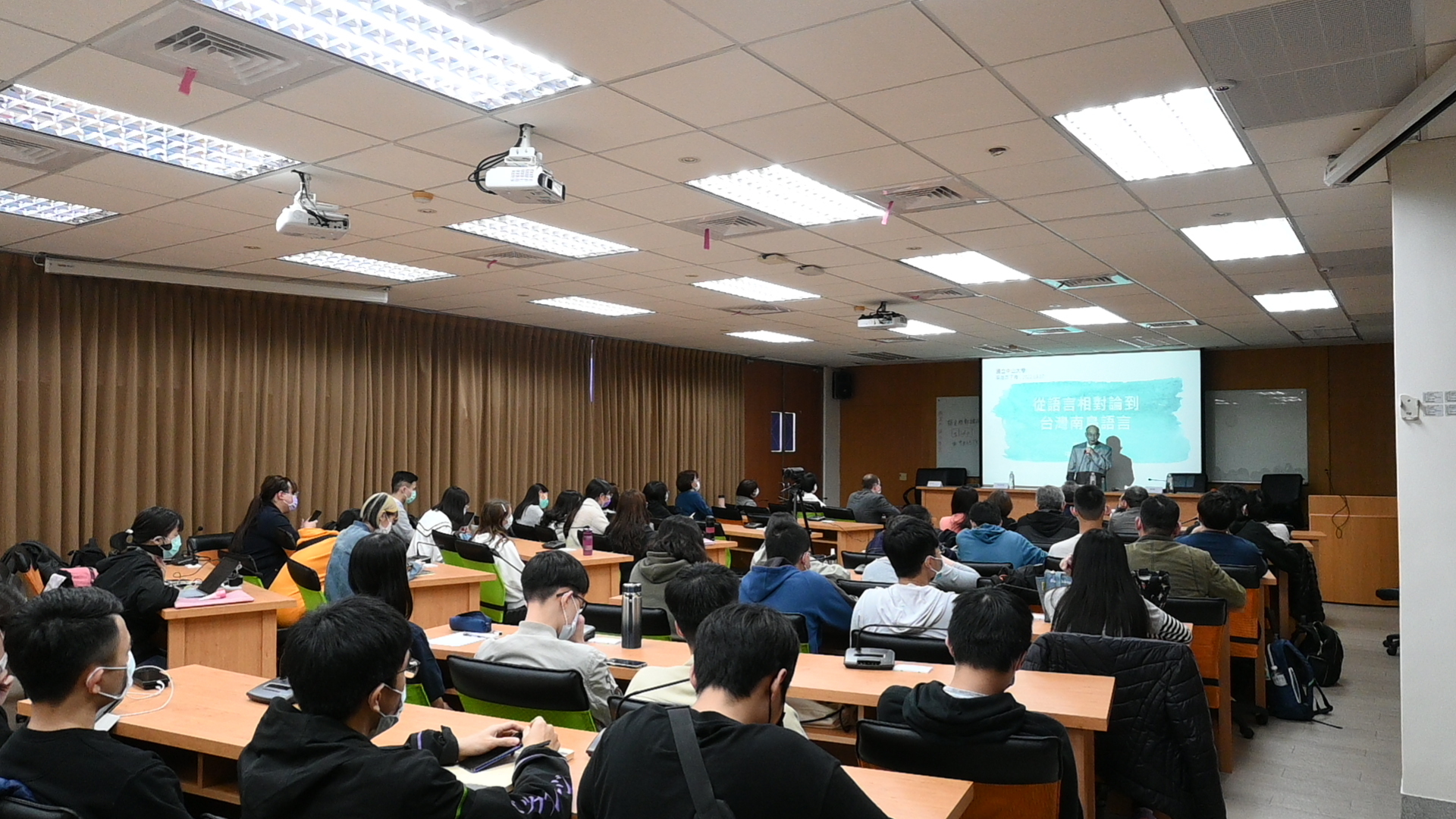
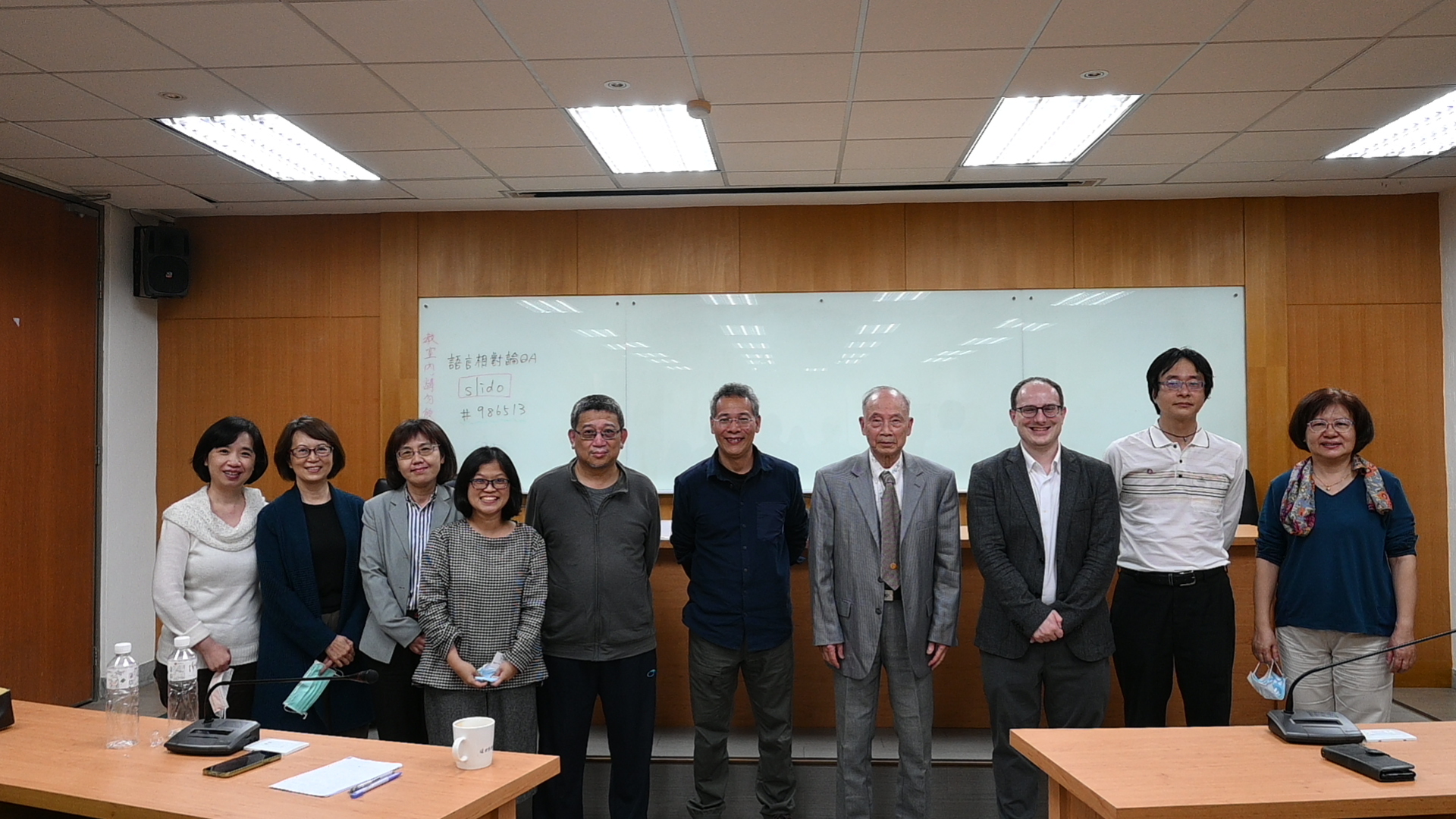
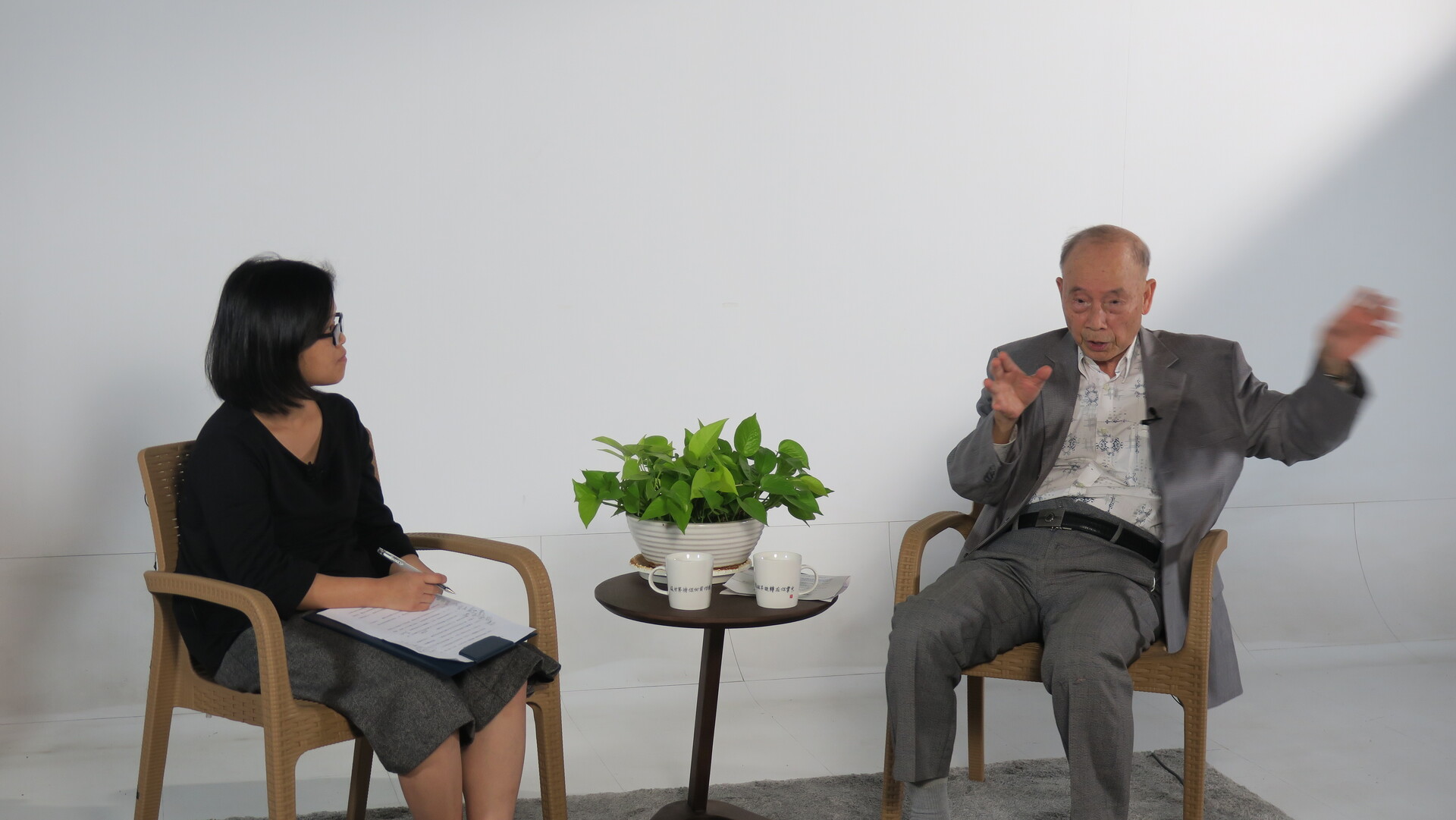
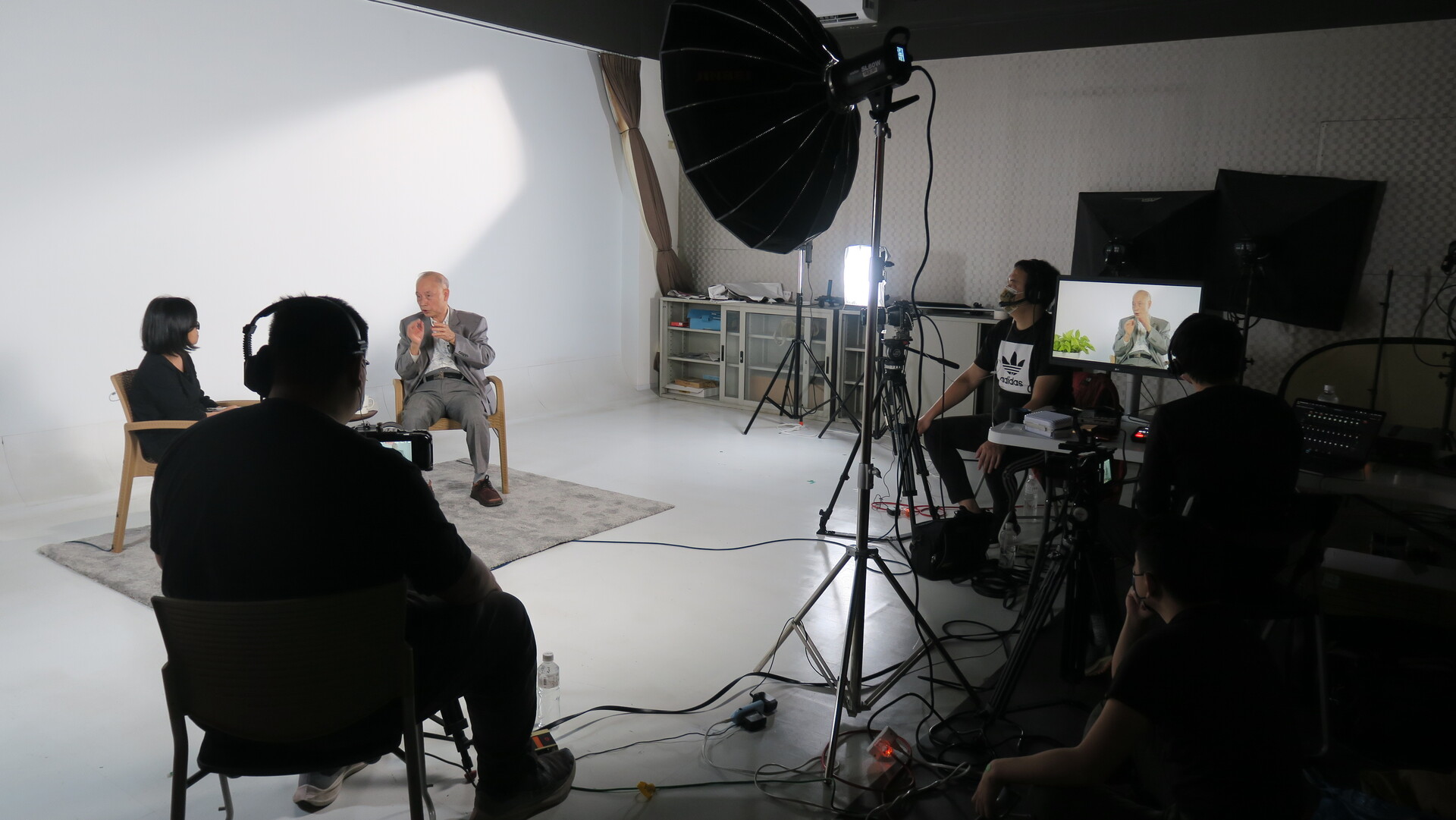
2022-04-11
(Provided by College of Liberal Arts) NSYSU College of Liberal Arts invited Li Jen-kuei, a research fellow at Academia Sinica to give a speech on the topic of “From Language Relativism to Austronesian Languages of Taiwan”. His cross-cultural lecture presented different ways of thinking about languages and elaborated on the local languages and cultures of Taiwan, attracting a full house of audience of students of various fields, as well as linguists from and outside the NSYSU campus.
Li Jen-kuei, acclaimed as the “father of the research on Austronesian languages of Taiwan”, has been dedicated to linguistic research for over 50 years. He explained that linguistic relativity means that different languages have different modes of thinking and that people's view of the universe changes depending on their language. He used some concrete examples to compare the differences in the modes of thinking of Sino-Tibetan, Indo-European, and Austronesian languages. For example, Sino-Tibetan languages group nouns according to the shape of objects and have a rich variety of classifiers, the Indo-European languages are concerned with the number of objects and thus have singular and plural forms, while Austronesian languages are concerned with human attributes and make a distinction between human and non-human constructions.
As for the numerals, most Sino-Tibetan and Indo-European languages adopt the decimal system, while Austronesian languages adopt also the quinary and vigesimal systems besides the decimal system. For example, ‘6’ in the Pazeh language is ‘5 plus 1’, while ‘40’ in the Favorlang language is ‘2 multiplied by 20’. Li Jen-kuei pointed out that the decimal, quinary, and vigesimal systems stem from counting fingers or toes in the primitive cultures. In addition to the language system, Li also compared the differences and similarities between the myths and legends of Han and Austronesian peoples, such as the flood myth, the shooting of the sun, and the snake as the primogenitor of mankind.
Fellow Li Jen-kuei conducted a comprehensive survey study of Taiwan’s Austronesian languages, helping to make Taiwan into an international center for research on Austronesian languages. He received numerous awards for his immense academic contributions. He said that Taiwan's important hard power are semiconductor technologies, while its soft power are its freedom, democracy, and rich linguistic landscape. He explained that there is a great diversity of languages in Taiwan, different numeral systems, and language systems, and that the linguistic evidence strongly points to Taiwan as the most likely origin of the Austronesian peoples. These are extremely valuable cultural assets for Taiwan. Li also made a strong appeal to understand and respect the multilingual culture of Taiwan from a cross-cultural perspective.
National Sun Yat-sen University hosts The Transcultural Sino-Island, a benchmark project of the Ministry of Education. A part of the project is a series of interviews with renowned global Sinologists. This time, the University invited Fellow Li Jen-kuei to give a lecture and an interview. Associate Professor Chia-Lun Tu of the Department of Chinese Literature said that the visit of scholars will not only broaden the horizons of the University’s students but also promote Taiwan's local culture besides traditional sinology and create a key opportunity for meaningful dialogue and exchange between sinology and Austronesian studies in Taiwan.
(Edited by Public Affairs Division)
(Provided by College of Liberal Arts) NSYSU College of Liberal Arts invited Li Jen-kuei, a research fellow at Academia Sinica to give a speech on the topic of “From Language Relativism to Austronesian Languages of Taiwan”. His cross-cultural lecture presented different ways of thinking about languages and elaborated on the local languages and cultures of Taiwan, attracting a full house of audience of students of various fields, as well as linguists from and outside the NSYSU campus.
Li Jen-kuei, acclaimed as the “father of the research on Austronesian languages of Taiwan”, has been dedicated to linguistic research for over 50 years. He explained that linguistic relativity means that different languages have different modes of thinking and that people's view of the universe changes depending on their language. He used some concrete examples to compare the differences in the modes of thinking of Sino-Tibetan, Indo-European, and Austronesian languages. For example, Sino-Tibetan languages group nouns according to the shape of objects and have a rich variety of classifiers, the Indo-European languages are concerned with the number of objects and thus have singular and plural forms, while Austronesian languages are concerned with human attributes and make a distinction between human and non-human constructions.
As for the numerals, most Sino-Tibetan and Indo-European languages adopt the decimal system, while Austronesian languages adopt also the quinary and vigesimal systems besides the decimal system. For example, ‘6’ in the Pazeh language is ‘5 plus 1’, while ‘40’ in the Favorlang language is ‘2 multiplied by 20’. Li Jen-kuei pointed out that the decimal, quinary, and vigesimal systems stem from counting fingers or toes in the primitive cultures. In addition to the language system, Li also compared the differences and similarities between the myths and legends of Han and Austronesian peoples, such as the flood myth, the shooting of the sun, and the snake as the primogenitor of mankind.
Fellow Li Jen-kuei conducted a comprehensive survey study of Taiwan’s Austronesian languages, helping to make Taiwan into an international center for research on Austronesian languages. He received numerous awards for his immense academic contributions. He said that Taiwan's important hard power are semiconductor technologies, while its soft power are its freedom, democracy, and rich linguistic landscape. He explained that there is a great diversity of languages in Taiwan, different numeral systems, and language systems, and that the linguistic evidence strongly points to Taiwan as the most likely origin of the Austronesian peoples. These are extremely valuable cultural assets for Taiwan. Li also made a strong appeal to understand and respect the multilingual culture of Taiwan from a cross-cultural perspective.
National Sun Yat-sen University hosts The Transcultural Sino-Island, a benchmark project of the Ministry of Education. A part of the project is a series of interviews with renowned global Sinologists. This time, the University invited Fellow Li Jen-kuei to give a lecture and an interview. Associate Professor Chia-Lun Tu of the Department of Chinese Literature said that the visit of scholars will not only broaden the horizons of the University’s students but also promote Taiwan's local culture besides traditional sinology and create a key opportunity for meaningful dialogue and exchange between sinology and Austronesian studies in Taiwan.
(Edited by Public Affairs Division)
Click Num:
Share
